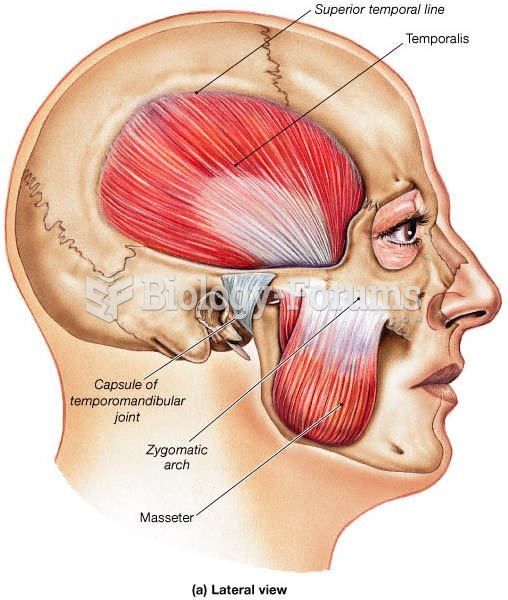|
|
|
Anti-aging claims should not ever be believed. There is no supplement, medication, or any other substance that has been proven to slow or stop the aging process.
The heart is located in the center of the chest, with part of it tipped slightly so that it taps against the left side of the chest.
Certain chemicals, after ingestion, can be converted by the body into cyanide. Most of these chemicals have been removed from the market, but some old nail polish remover, solvents, and plastics manufacturing solutions can contain these substances.
There are 20 feet of blood vessels in each square inch of human skin.
Warfarin was developed as a consequence of the study of a strange bleeding disorder that suddenly occurred in cattle on the northern prairies of the United States in the early 1900s.
 Young adults with low levels of parental support report significantly better scores on measures of ...
Young adults with low levels of parental support report significantly better scores on measures of ...
 U.S. adults from 25 to 74 years report that the largest proportion of their daily stressors arise ...
U.S. adults from 25 to 74 years report that the largest proportion of their daily stressors arise ...





